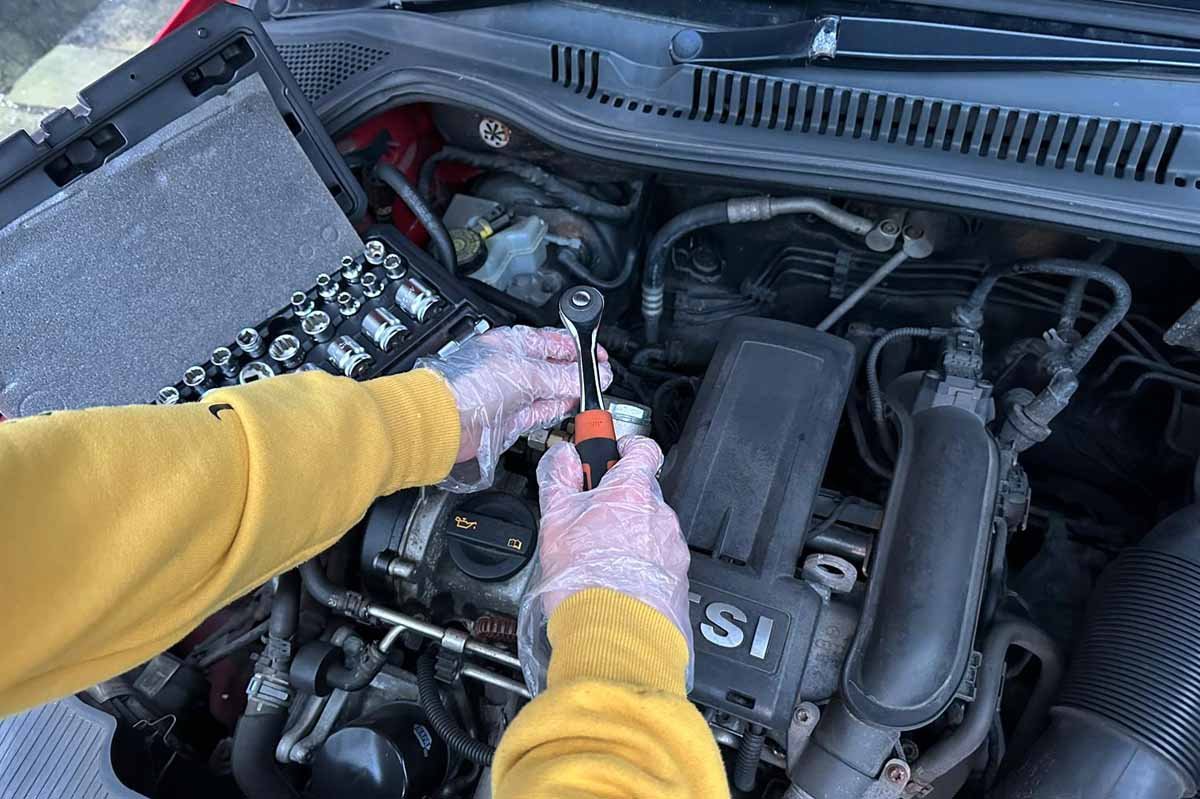So, you’ve got your first car—fantastic! It might have 150,000 miles on it, but it’s still going strong. How do you keep it that way? Here are some essential car maintenance tips for beginners. We’re going to explore the world of new driver maintenance, but don’t worry—we’re going to keep it simple.
Performing your own maintenance can save you much money on labour in the long run, as garages must charge for their time. With that being said, getting into car maintenance can be daunting even at a beginner level, but we’re going to help you out by giving you all the tips you’ll need to send you on your way to becoming a fully-fledged car enthusiast.
If you’re strapped for time, we’ve outlined all the tips in this article below so you don’t have to read the whole thing. You can always return to this page later if you need more help. If you’re done with maintenance and want to start modding, check out our Best Car Mods for Beginners page.
Article overview
As promised, here’s a comprehensive list of everything this article covers.
- Read your car owner’s manual – to get the correct information about your car, such as oil type and fluid levels.
- Change your oil – change your oil at the frequency stated in your car owner’s manual.
- Check fluid levels – nothing worse than getting a dirty windscreen to find you have no washer fluid left.
- Change your spark plugs (petrol) – charred or dirty spark plugs can be the culprit of anything from misfires to low-fuel economy.
- Maintain your battery – check for corrosion regularly and keep it clean.
- Check your brakes – breaks are important, get your breaks inspected as per your owner’s manual describes.
- Keep your tyres inflated – flat tyres can leave you stranded on the side of the road, and worse yet, one could blow up on the motorway.
- Change filters – changing the air, cabin air, fuel, and oil filters can give your car a new lease of life.
- Test your lights – lights are important, if you know you’re going to be driving at night, check to make sure they work.
- Keep your car clean – especially true in winter, salt on the road can increase the rate your car rusts.
- (BONUS) Read car codes – If you have a diagnostic machine, your car will tell you what’s wrong with it, isn’t that cool?
With that little introduction out of the way, let’s get into our essential car maintenance tips for beginners.
What are the best car maintenance tips?
Owning a car is more than just driving it, like a puppy, or a hamster, you have to take care of it. Feed it fuel, stroke it with a nice cloth with some wax on it, and make sure you take it out for a good run every now and then. (Please don’t wax your hamsters, it’s a metaphor).
We have compiled all the do’s to perform your own maintenance, and we’d like to share our maintenance tips below.
Read your car owner’s manual
Your car owner’s manual contains valuable information, such as the pressure of which to inflate your tyers, all the appropriate fluid levels, what type of oil to add to your car, and the list goes on.
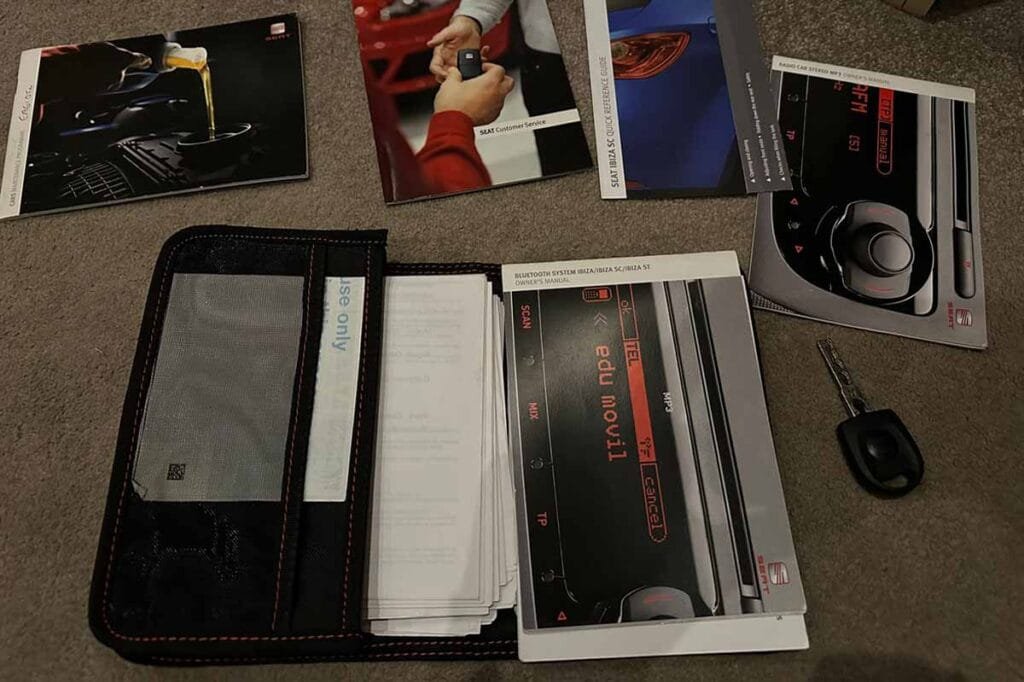
Your car owner’s manual should have been given to you when you purchased the car; you can check the glove box, as it’s often thrown in there and forgotten about.
Since we live in the age of computers, you can look up your owner’s manual online if you can’t find your paper copy. This is done by telling your car’s manufacturer your VIN and downloading the manual they provide. Your owner’s manual tells you exactly how to care for your car, so this is so important.
Following the maintenance schedule outlined in your owner’s manual is important to keep your car running in tip-top shape. The recommended service interval for most cars is 12,000 miles, or 12 months, whatever comes first. Your car may vary, again, check the manual.
Check and change your engine oil
Engine oil is probably the most important fluid in your car, it lubricates all of the internal components to keep them operating as they should with as little friction as possible. Oil also helps cool your engine, helps prevent corrosion and helps to clean your engine. So it’s important that, in return, you keep the oil clean.
EliteGarages recommends changing your engine oil every 5,000 to 7,500 miles. Your owner’s manual may stipulate an exact mileage at which to change your oil; if so, follow that number.
You can check your engine oil level with the dip stick unless you have a BMW, which decided electronically measuring the oil level is a better idea—it’s not.
You should also look out for things when changing your oil, such as the consistency, colour, and whether or not there are shiny metal shards in the oil as it is drained. All of these signs can point to a serious engine problem, and you should take your car to a mechanic as soon as possible—not before putting more oil in, of course.
When you change the oil, it’s also a good idea to change the oil filter. A top tip for changing oil filters, make sure you lubricate the rim of the oil filter before installing it, it makes it far easier to remove next time.
We have an article on checking your car’s engine oil if you need to know more.
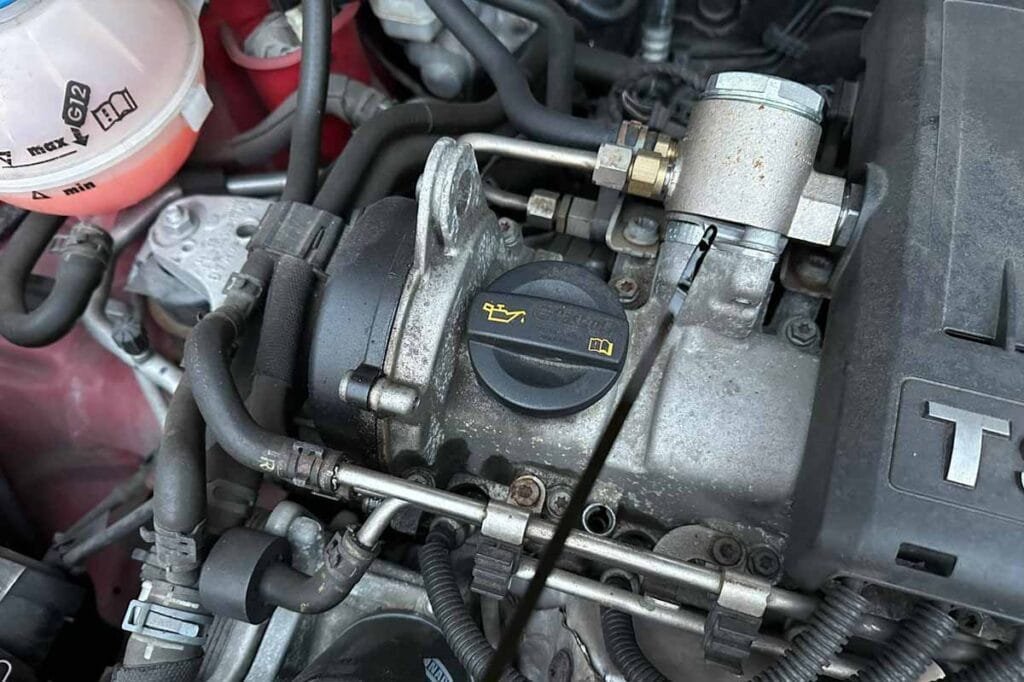
Check car fluid levels
With this one, we’re not just talking oil; we’re suggesting you check everything, from the coolant to the washer fluid. Plenty of fluids in a vehicle can leave you stranded if you find yourself without them, and there are plenty of them in your average car.
Most cars contain the following, except very few.
- Engine oil
- Engine coolant
- Brake fluid
- Power steering fluid
- Fuel
- Transmission fluid (gearbox fluid)
- Window washer fluid
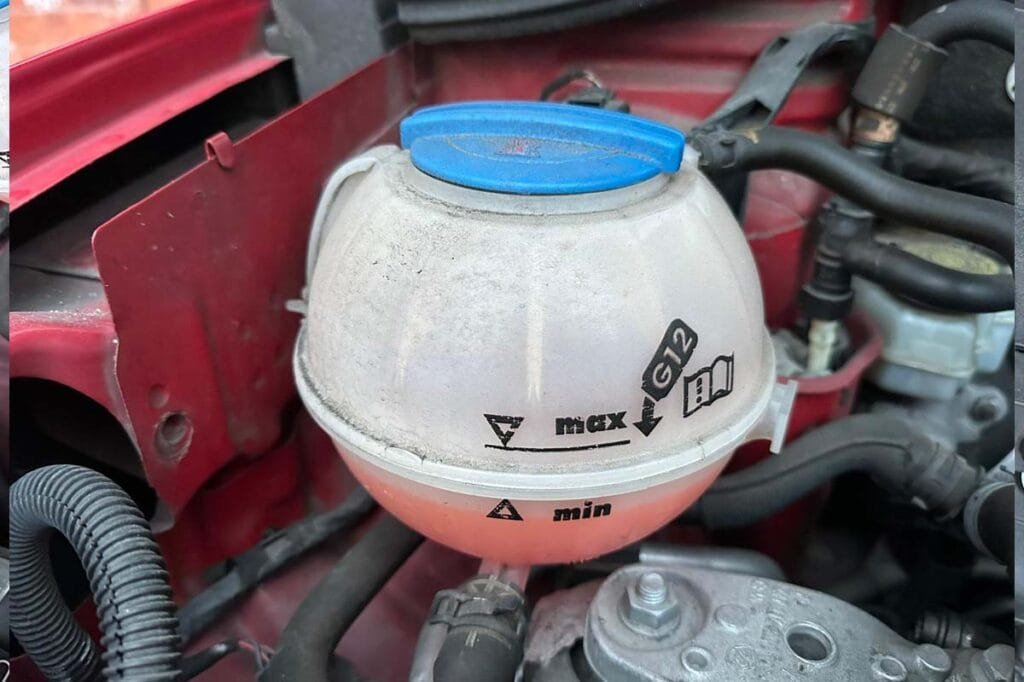
Fluids are the lifeblood of the engine and should be treated as such. Fluid levels should be checked before you embark on any long journeys, and it’s a good idea to carry some backups of the essentials, like oil and washer fluid.
Topping up these fluids is really easy. It just involves unscrewing a cap in the engine bay and filling up to the fill line. That’s about it.
Gearbox fluid is a little different in that there should be an overfill plug on the gearbox under the car. When you top up your gearbox fluid, remove this overfill plug and let the excess fluid drain out. And there you have it, a perfectly full gearbox.
Please note that not all cars require you to fill the gearbox this way. Consult your owner’s manual, as the procedure is different for specific makes and models.
Change your spark plugs
admittedly, this only applies to petrol enjoyers, but changing your spark plugs can give your car a whole new lease of life. There are a lot of scary, serious engine faults that can be sorted by a quick spark plug change, some of which include misfires, engine knocks, and low fuel economy. The last one isn’t too scary unless you’re a wallet.
Protyre says spark plugs should be changed between 30,000 and 50,000 miles. However, due to fault or failure, they may need to be replaced earlier.
If you follow the guidelines, you can be sure that spark plugs are not the issue if you encounter any spark-related issues, we’d recommend checking the coil pack next if you still can’t get things sparking.
Spark plugs are inexpensive and easy to change, make sure you consult your owner’s manual or check online to find the exact spark plug specification you need.
Spark plugs are “gapped” meaning the space between the centre and side electrodes is a specific length apart for a certain engine. Getting the wrong gap can affect how your engine runs.
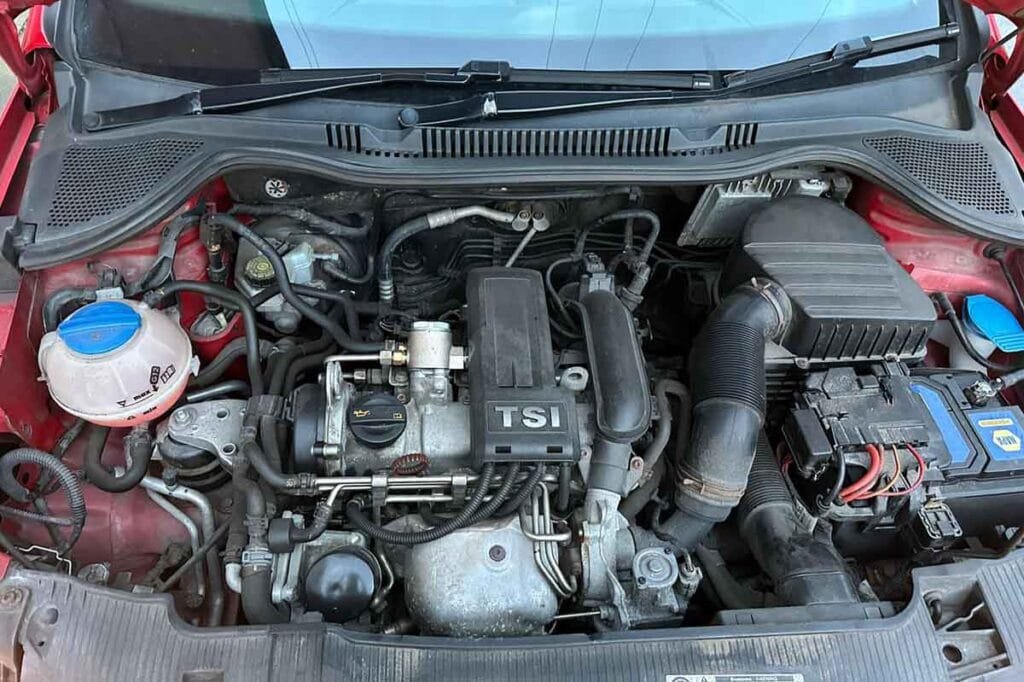
Maintain your battery
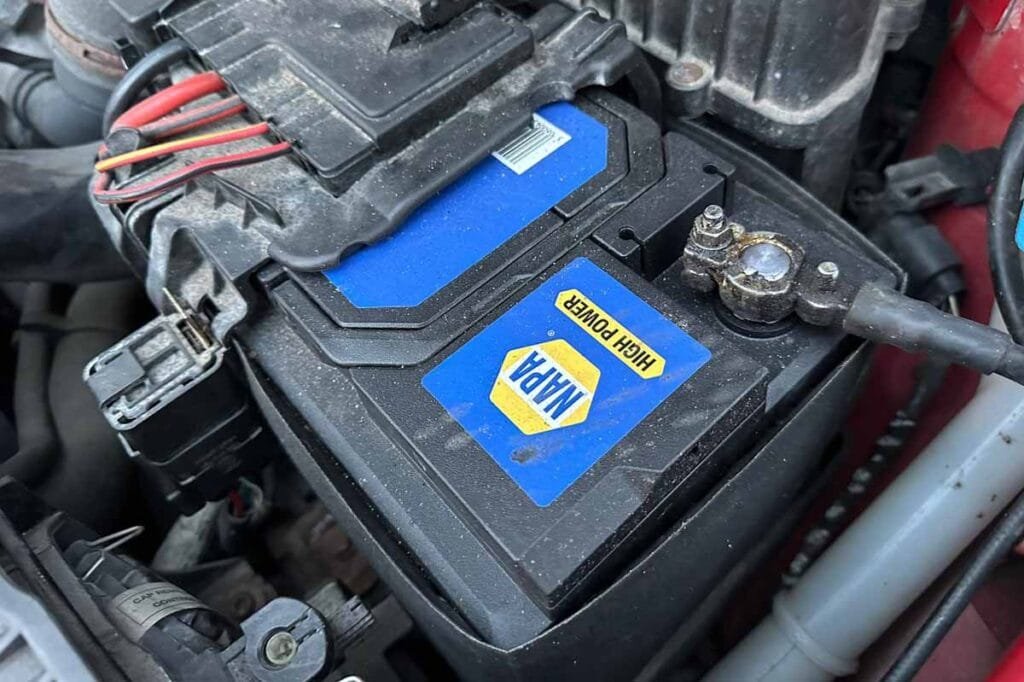
Batteries are again incredibly important in your car’s day-to-day operation. For one, the car won’t start normally without a battery.
Batteries should be changed every 3 years or so, as this is their expected life span. They can be pricey but are easy to replace: just remove a couple of wires from the terminals, undo the tie-downs, and out it comes.
Battery issues often arise before the end of their life cycle. That’s why it’s important to keep your battery terminals clean and free of corrosion. While you are there, it wouldn’t hurt to make sure the wires are tightly secured to the terminals, either.
No battery, no start unless you have a jump pack or a large hill. Remember, though, that if your car has start-stop technology, you need to buy a specific battery for that; you can’t just get any. Please, again, consult your car’s manual.
Check and service your brakes
Having your brakes serviced can mean checking your brake pads, brake fluid, or callipers for wear or damage.
Your breaks are vitally important for, well, stopping. Because of this, we highly recommend that breaks only be worked on by a mechanic or someone with experience.
That said, if you really want to service your brakes, the best thing you can do is pop the wheel off and check your brake pads for excessive wear and your brake discs for signs of corrosion or warping.
Bleeding your breaks can be done alone or with help. It is much easier with someone else helping out, as they can pump the breaks while you supervise the bleeding. If you’re alone, you’ll have to buy a break bleeding kit or fashion an airless drain out of an old bottle, and some brake fluid to stop air from getting back into the system.
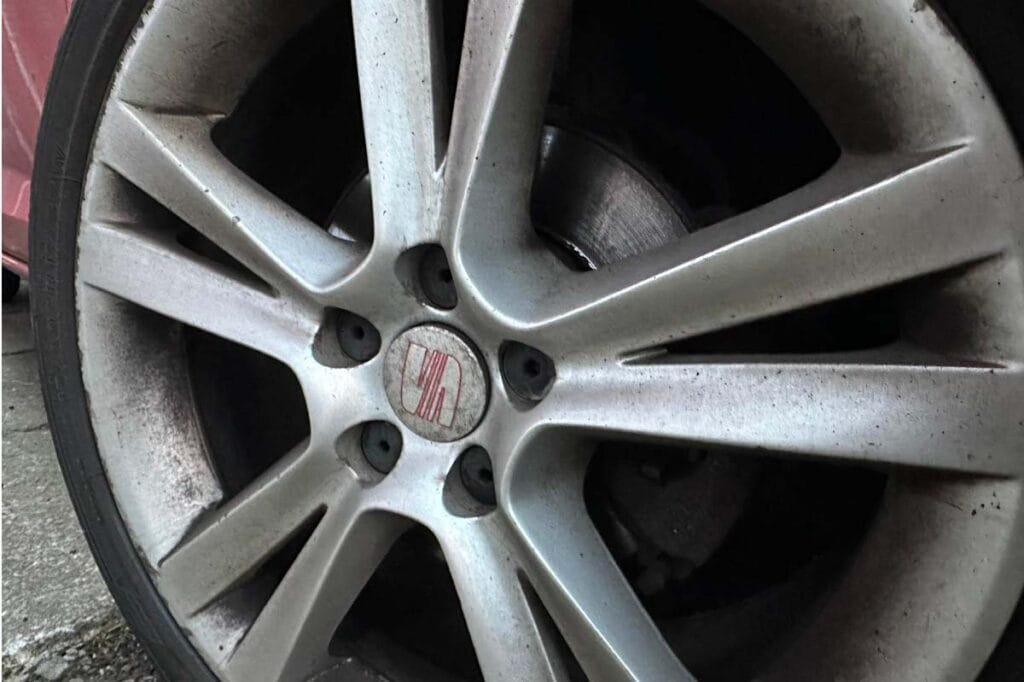
Keep your tyres inflated
This one is pretty self-explanatory. You don’t want to be trudging along the M6 at 70MPH just to find out you have a flat tyre. Your car’s tyres are the only point of contact and the singular source of grip on the road. You must make sure they are in tip-top condition and full of the appropriate amount of air.
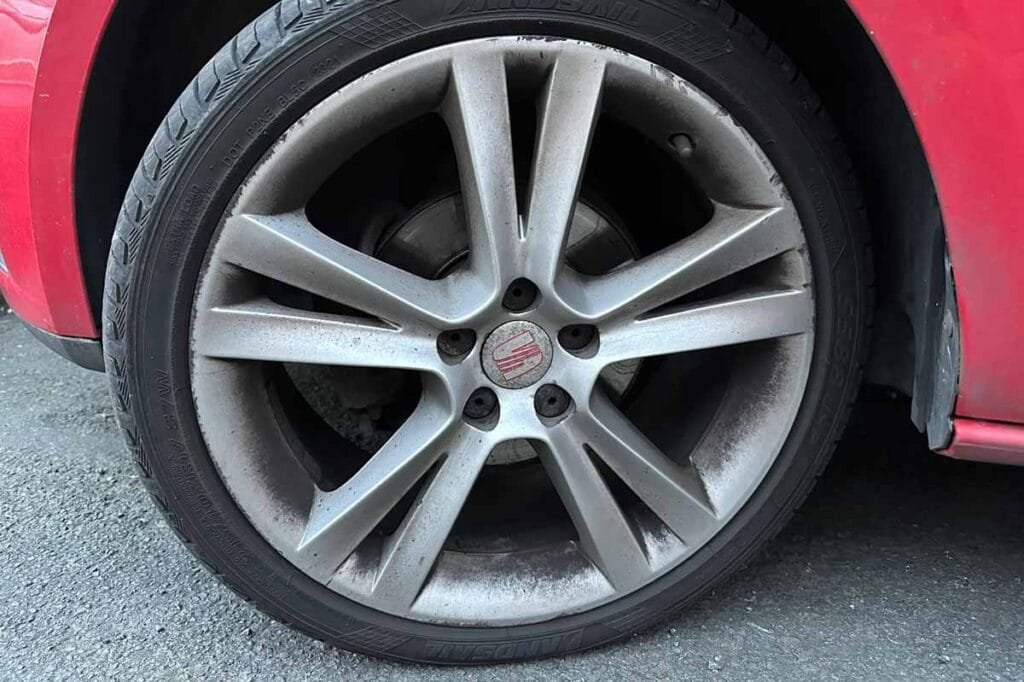
Keeping your tyers happy involves more than just filling them full of air; it involves simultaneously checking for wear and damage.
If you want to know how much air to put in your tires, guess where to find that information. If you said the owner’s manual, you’re wrong. You can find it printed on the side of the tyre itself. Isn’t that handy?
While you are there, you may as well inspect the tread depth (the legal limit in the UK is 1.6mm) and check the side wall for cracks and signs of damage.
You should only keep a tyre until it’s around 6-10 years past its production date, as long as there is no cracking or bulging – or the tread is less than 3mm. Whatever comes first.
Change your oil, fuel, and air filters
The filters that should be changed the most frequently are the Engine oil filter, the Fuel filter, the Cabin air filter, and the Air intake filter.
All of these filters are very easy to change yourself and relatively inexpensive. The only filter that can be tricky to replace is the fuel filter, as it can be located anywhere on the car, but it is usually either under the bonnet or under the car itself.
Some filters, like the air filter and the cabin air filter, have a certain flow pattern that needs to be followed, so take care that you don’t install them the wrong way around. Changing your air filter is easy and can be done at home with little to no tools.
Replacing your filters can help your car get cleaner fuel, better, high-quality air, and cleaner oil – Prolonging its life and preventing certain issues.

Test your car’s lights
You like seeing, don’t you? Ensuring all of your lights work is imperative to be safe on the road, especially at night. Lights don’t just help you see; they also help other road users see you. If you have a light out, some road users may mistake you for a motorcycle, which can lead to dangerous manoeuvres.
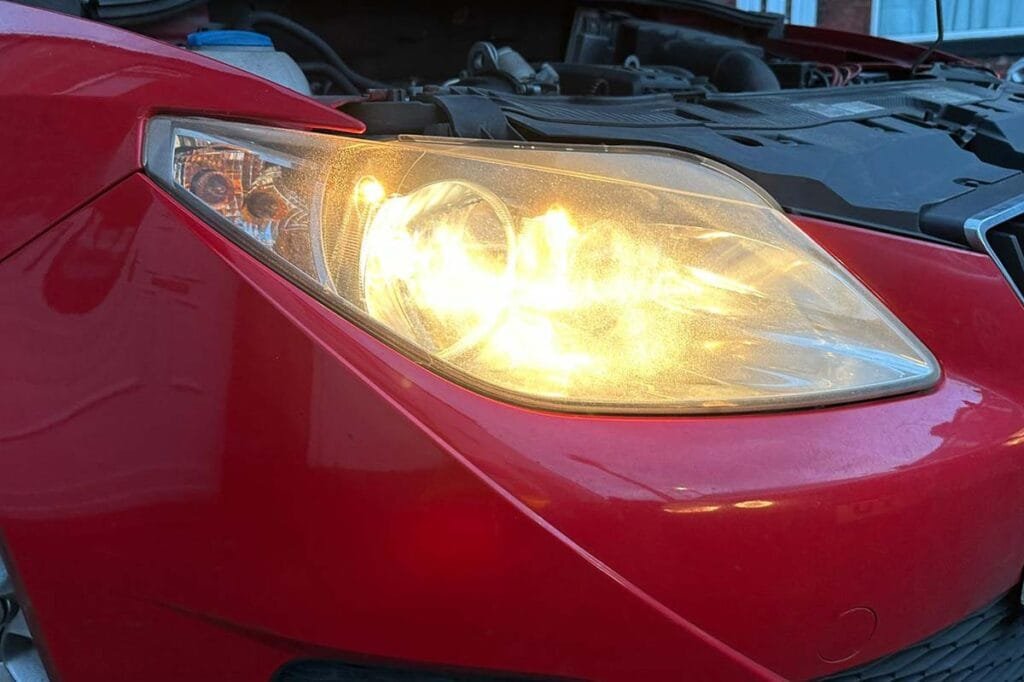
Faulty lights can be caused by many things. A bulb could be out, a fuse blown, or other electrical issues. As mentioned above, testing your lights can make driving much safer for you and other road users.
Getting bulbs is relatively easy; you must know which ones to get. You can easily search the internet for what type of bulbs your car takes in what area, or head on down to a garage like Halfords if you’re still unsure.
Lights also have to follow a certain pattern and be a certain colour. Failure to follow these guidelines can result in a failed MOT or, worse, get you in trouble with the local authorities.
Keep your car clean (Look out for rust)
Cleaning your car makes it look good and helps keep away that pesky rust.
Rust on your car’s substructure can sometimes spell the end for it. If you’re not willing to pay for a mechanic to cut out and weld a new piece of metal onto your car and you don’t know how to weld, there’s not much you can do. So, it’s best to do your best to prevent rust in the first place.
Some cars rust more than others, and that is because of the materials used to construct them. It’s always best to keep your car clean, especially during winter, as the water on the road is usually full of salt, rapidly speeding up the rusting process.
There are products you can get that prevent rust to the substructure of your car. Just rinse it and apply some under your car to form a protective barrier against moisture and, ultimately, rust.
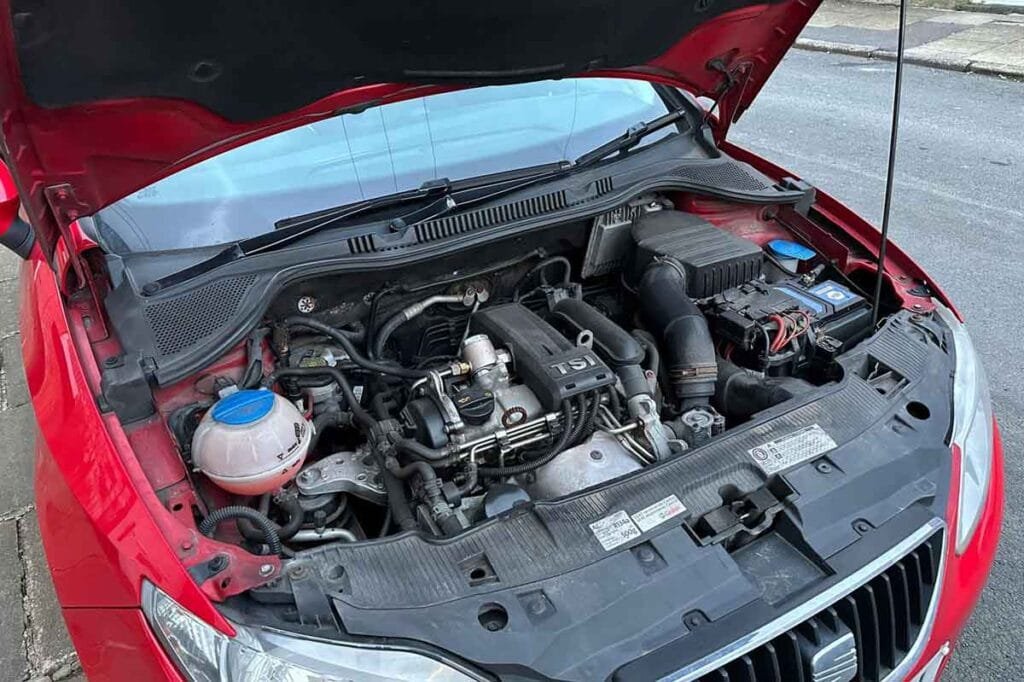
(BONUS) Read car codes
Reading your car’s fault codes is essentially your car telling you what’s wrong, if you have the money to buy an OBD reader, that is. There are some reasonably affordable tools out there now, diagnostics isn’t as gatekeeper by big brands as it used to be.
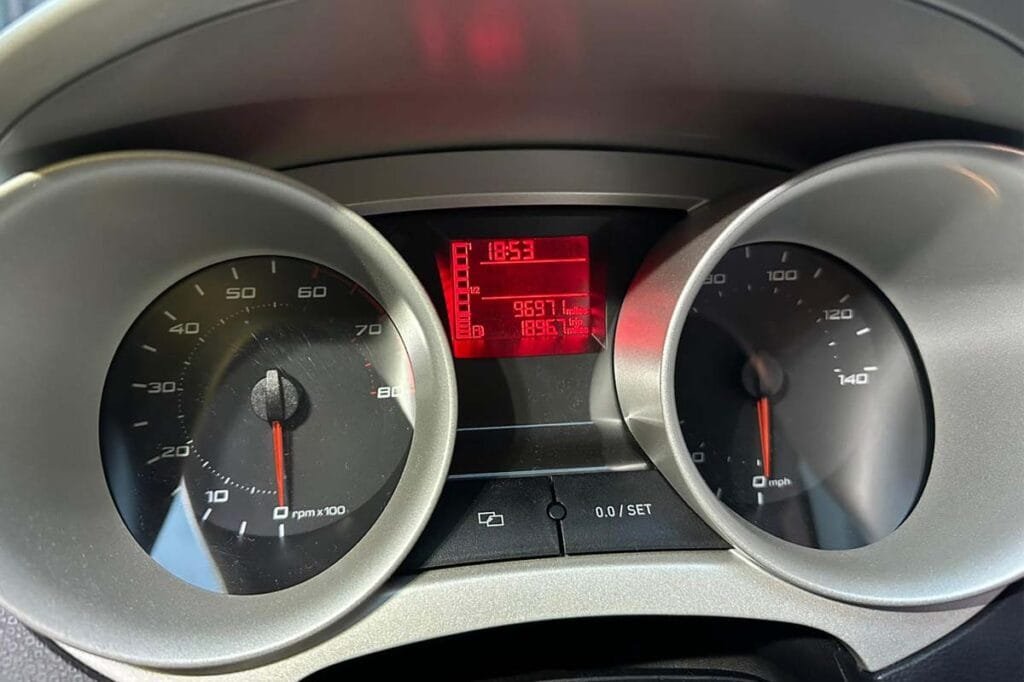
Having access to an OBD reader can be like having the cheat codes to car maintenance. Not only will your car tell you what’s wrong, but it’ll also give you a handy code to research and find exactly what the problem is and how to fix it.
OBD readers can be expensive if you want a garage-quality one, but there are solutions like Carly that connect directly to your phone to give you a portable diagnostic machine.
This method can help you find faults and issues before they become a big problem. For example, my car needed a crank position sensor, something I never would have known had I not had an OBD reader.
How often should I get my car serviced?
Is performing my own car service worth it?
Final word
There you have it—all the essential car maintenance tips for beginners that we thought you should know. Maintaining your car properly is the best thing you can do for it. At the same time, you can use this beginner maintenance as a gateway into more complex projects and DIY repairs.
All of these maintenance tips are easy to do yourself and relatively inexpensive. If you learn to perform these simple maintenance items yourself, you can save a lot of money on garage labour, and who doesn’t like saving money?
If you need more information on any of the maintenance tips we discussed, check out our dedicated articles on them. We here like to keep things as simple as possible. We were all beginners once, and a lot of us still are—that’s what makes us the perfect place to go for all your beginner car needs.

